 Pecks Mill White Collar Crime Lawyers, West Virginia
Pecks Mill White Collar Crime Lawyers, West Virginia
Sponsored Law Firm
-
 x
x

Click For More Info:
-
The Law Offices of Richard L. Cooper, P.A.
848 Brickell Avenue Suite 800 Miami, FL 33131» view mapDWI/DUI, Drug Trafficking, Felony Nationally Ranked Top 40 Under 40
With Richard L. Cooper you can expect a trusted confidant who will work diligently to fully understand your case and determine a road map to help you regain control of your life.
800-756-2781
Not enough matches for Pecks Mill White Collar Crime lawyer.
Below are all Pecks Mill Criminal lawyers.
Sponsored Lawyers
1-10 of 27 matches
Accident & Injury, Criminal, Bankruptcy & Debt, Family Law, Trusts
Ron has, over the last decade, assisted clients by planning and designing settlements to address future needs and ensure any government benefits are protected. He has been involved in settlements involving personal injury, workers’ compensation, and employment-related claims. Ron’s consulting and legal services also include providing economic expert witness work, reducing future claimed damages to present value, and advising on work-life expectancy. Our firm brings a unique perspective and approach to law: after more than a decade of advising clients on financial matters, we decided our firm would focus on areas of financial law. This is why bankruptcy, trusts, and tax law are our major focus areas. Of course, we are happy to discuss and assist you with all your legal needs. We aim to be accessible and able to provide personal attention to every client we work with.
(more)Accident & Injury, Personal Injury, Divorce & Family Law, Criminal
Whether you have suffered an accident while on the job or suffered an injury during a car accident or semi truck accident, The Law Offices of Claude S. Smith III devote personal attention to your case. Our attorney and legal staff understand the pressure and emotional stress experienced by those involved in legal cases. We strive to bring personalized attention and care to every single client.
(more)Accident & Injury, Divorce & Family Law, Employment, DUI-DWI
Jon graduated from Widener University School of Law in 1999. Jon returned to West Virginia and worked briefly with the Kanawha County Prosecuting Attorney's Office before joining the Huntington, West Virginia law firm of Offutt, Fisher & Nord as an associate in October, 1999. As an associate, partner, and member at Offutt, Fisher & Nord Jon successfully oversaw Three Hundred litigation cases. Nearly all of the cases involved the defense of automobile insureds, trucking insureds, trucking companies, physicians, and healthcare organizations in lawsuits alleging malpractice. In 2008 Jon was selected as a 'rising star' by Super Lawyers. In November, 2009 Jon left Offutt Nord, PLLC to begin his own firm in Barboursville, West Virginia specializing in personal injury litigation. During his career Jon has successfully taken 36 cases to trial. Jon has successfully tried cases in West Virginia Magistrate Courts, Family Courts, Circuit Courts, and the United States District Court for the Northern District of West Virginia. Additionally, Jon has successfully tried cases in Kentucky District and Circuit Courts as well as Tennessee Family Court. In May, 2010 Jon joined his former law partner, Scott Andrews, and established Hoover Andrews in Barboursville. Jon represents injured persons in the areas of auto accidents, products liability, and premises and workplace liability accidents. Jon is licensed in both West Virginia and Kentucky and is noted for his aggressive oversight of cases. Jon is married to the former Stephanie Thomas, and they have two beautiful children, Brighton Pamela and Rhett Christopher. The Hoover family enjoys numerous outdoor activities while at the beach and in the West Virginia mountains.
(more)



 Richard L. Cooper Miami, FL
Richard L. Cooper Miami, FL AboutMiami Attorney at Law
AboutMiami Attorney at Law ServicesCriminal Defense
ServicesCriminal Defense



